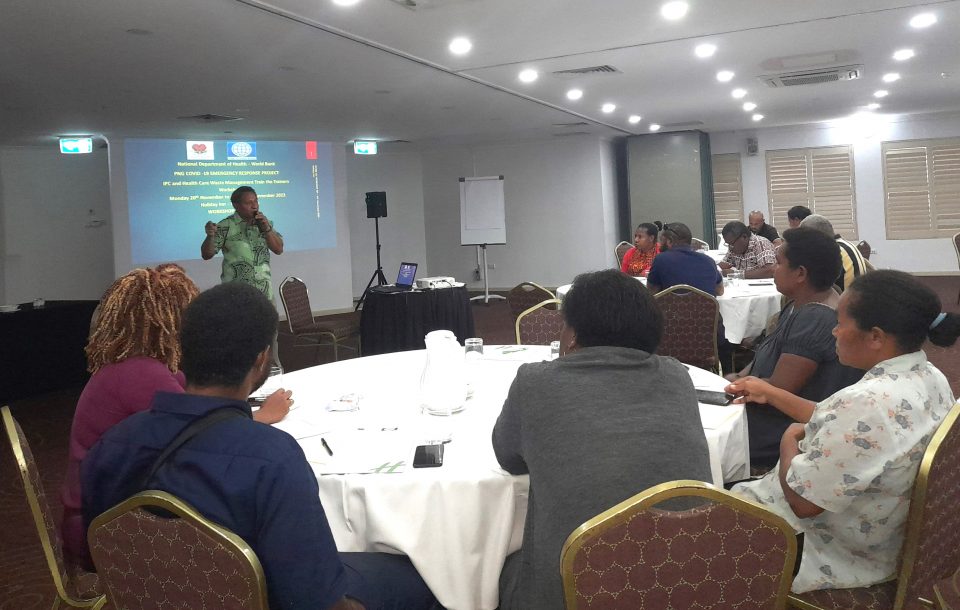Managing health care waste should be at the forefront of health service delivery and not discarded at some corner. The above was the message from the Emergency Tuberculosis and COVID-19 Emergency Response Project Coordinator Dr Godfrey Yikii at the closing of a one-week Healthcare Waste Management and Infection Prevention Control (HCWM & IPC) Training of Trainers (ToT) in Port Moresby recently.
The training was delivered by the NDoH Project Coordination Unit and was attended by about 30 provincial environmental health and infection control officers from 21 PHAs and the Autonomous Region of Bougainville where incinerators will be set up by the project through partners. Healthcare waste includes all wastes generated from all sources of healthcare establishments in PNG.
There are two type of healthcare wastes – infectious or potentially infectious wastes, also termed as medical waste and other wastes generated in health-care establishments – also termed as solid wastes or general wastes. Healthcare waste has a higher potential of infection and injury than any other type of waste. Waste management programs provide a minimum standard for safe and efficient disposal of waste.
The training aimed at enabling participants to be aware of the impacts of healthcare waste generation and appropriate management methods, understand responsibilities in regards to waste management, understand procedures necessary to ensure proper healthcare waste management and be able to provide HCWM training to personnel within their facility.
Components of the training program included identifying sources/examples of healthcare waste, recognising the hazards of healthcare waste, describing components of an effective occupational health and safety program, understanding the principles and basic approaches for HCWM and treatment, conducting a healthcare waste assessment at a health facility, environment permit requirements and standard operational procedures in the health facility and developing healthcare waste contingency plans.
Dr Yikii said with further discussions with the Conversation and Environment Protection Authority (CEPA), the project hopes to have these provincial participants certified as Environment Inspectors as well as being HCWM focal points in the provinces. He told participants that in order to becoming focal points for HCWM, they need to be advocates and voice for HCWM for their communities in their respective provinces. As part of the training, participants also visited Roku Total Waste Management (TWM) Integrated Facility outside Port Moresby to see how the company manages wastes it collects from its clients.
The COVID-19 Emergency Response Project which aimed at preventing, detecting and responding to COVID-19 will strengthen national systems for public health preparedness and is implemented concurrently with the Emergency Tuberculosis Project by the National Department of Health with funding from the World Bank. Through this project, the NDoH will be installing incinerators at 21 provincial hospitals.


